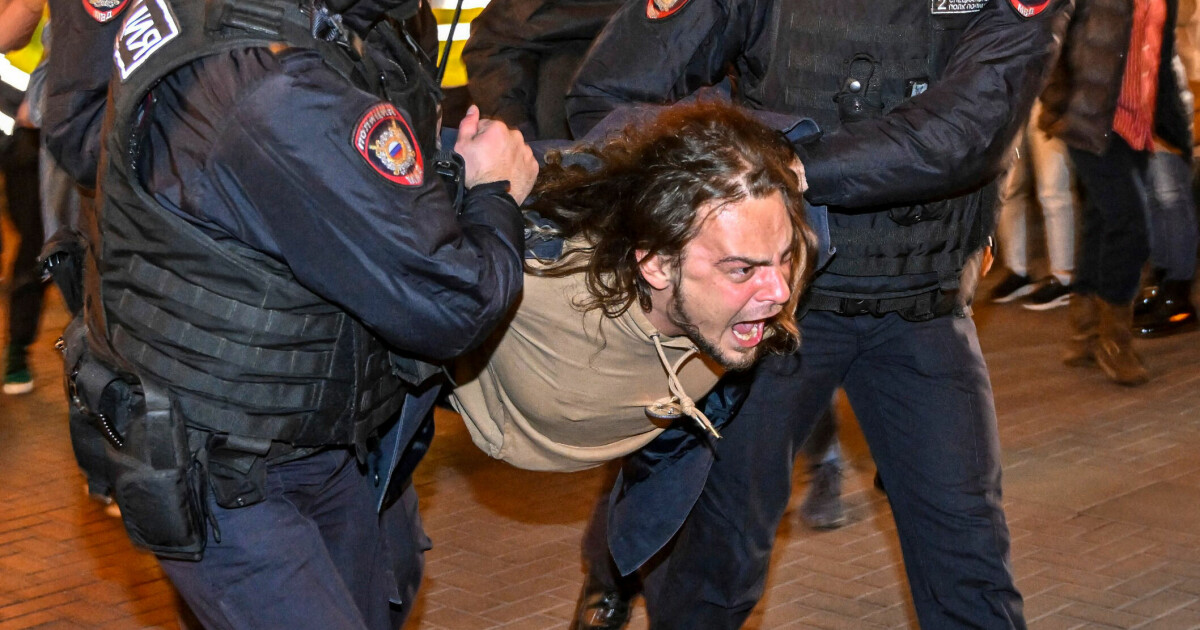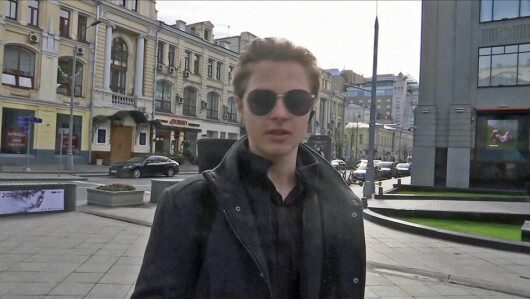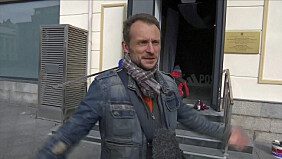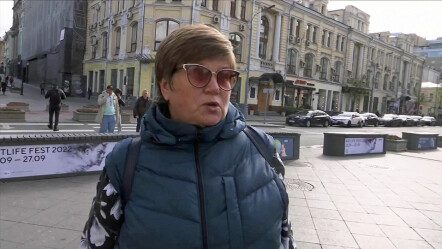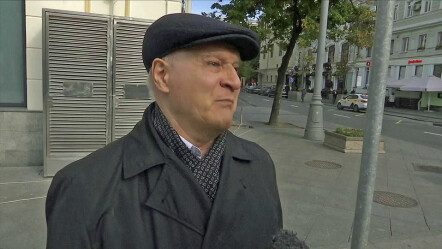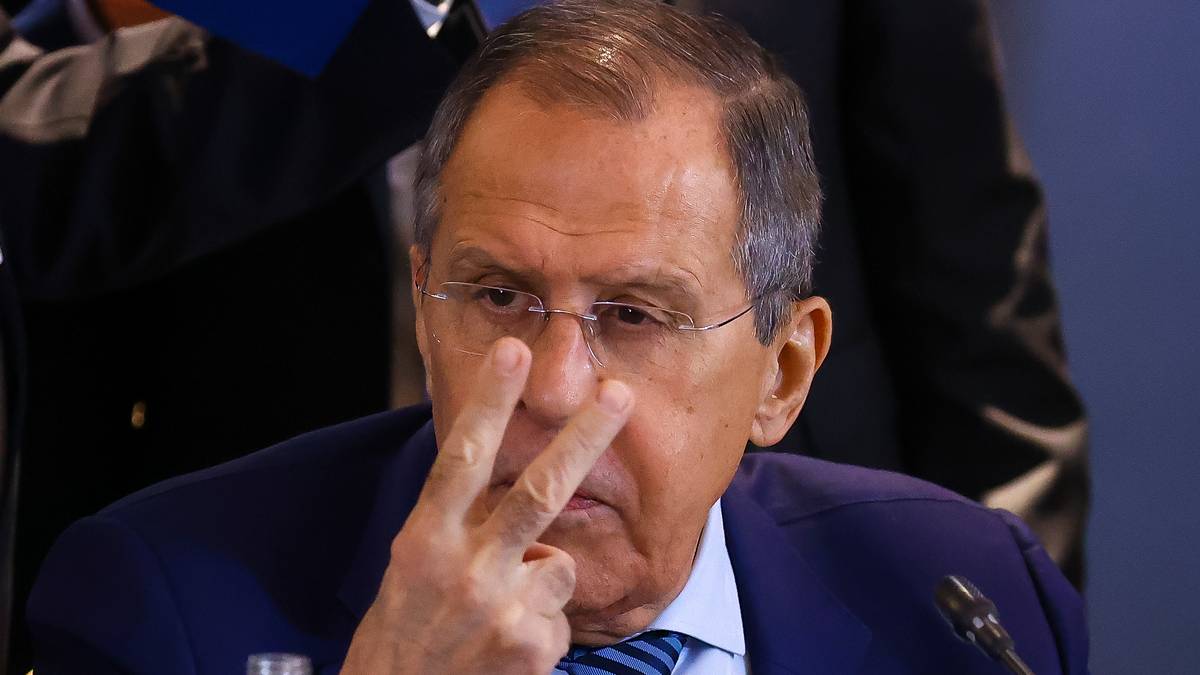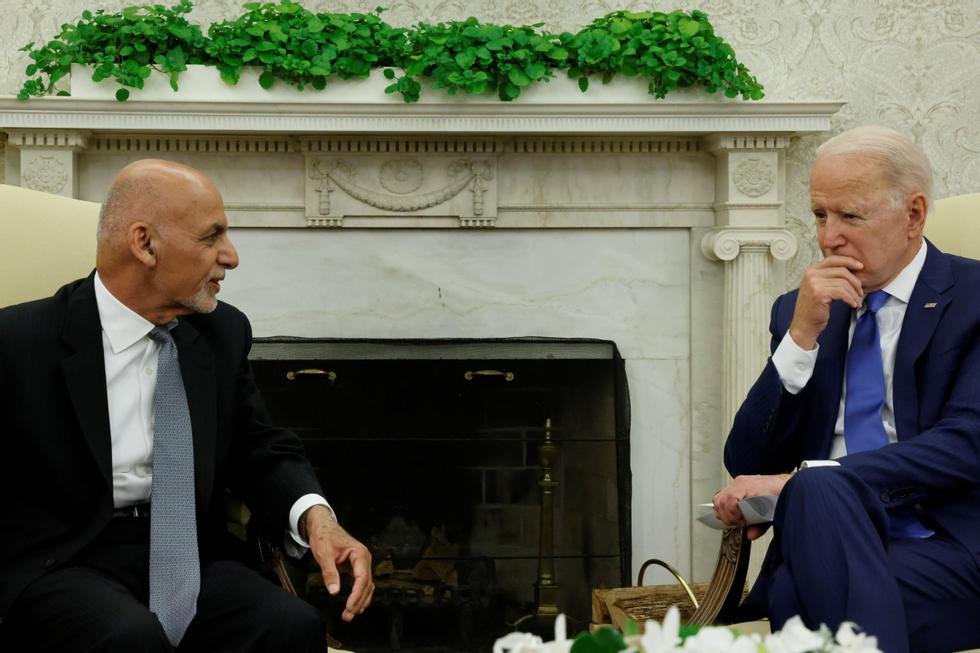President Vladimir Putin’s announcement of partial mobilization means that 300,000 reservists can be called up for service. For the first time, the war is approaching the Russian middle class.
On Wednesday evening, demonstrations were held in more than 30 Russian cities. So far, more than a thousand people have been arrested after defying the ban on demonstrations, according to Reuters.
Several hundred were arrested in Moscow, but also in smaller cities many attended to demonstrate.
– I refuse to die for Putin, shouts a protester in Novosibirsk, reports the news agency.
People who attend these demonstrations risk imprisonment for many years in a worst-case scenario.
Sky News has a correspondent in Moscow. She tells the channel that the police are behaving very brutally. The police use violence, and the police and security forces are overburdened. The protesters were driven away in buses.
mixed reactions

Concern: Dennis says he doesn’t want to leave his wife and children behind in case the army is called up. Photo: Reuters.
However, on the street in Moscow earlier today, there were mixed reactions to the development.
– You always feel anxious at times like this. You have a wife and children and you think about them. “I don’t want to leave them if something happens,” Dennis told Reuters.
Others try not to let anxiety overcome them:
Avoid the idea: Alexander thinks it’s best not to think about the situation. Photo: Reuters
– To be honest, if you think about this whole situation… you’re better off if you don’t think about it. If you think about it too much and let it weigh you down, nothing good comes of it, says Alexander.
Unconvincing: Anatoly is not in the reserves and therefore thinks that there is nothing to worry about. Photo: Reuters
None of the interviewees wanted their surname published.
– I am not part of the reserve forces, so I am not worried about it, says Anatoly.
The propaganda apparatus of the Russian authorities is formidable. On the news, the Russians hear that Nazis and racists must be fought in Ukraine, that NATO is the aggressive party, and that the nuclear threat comes from the West.
TV2 spoke to the Russians, who said that there was great fear among the residents. They fear nuclear war, and fear that their relatives and loved ones will have to go to war. What they say in public is often more conservative.
You can be punished with fines and imprisonment for criticizing the military or demonstrating against Putin.
Although many Russians oppose the war, and follow the opposition through other channels, the vast majority of them are exposed only to the narratives that the Russian authorities want them to receive through the state-controlled media.
supports war
Supporting references: Tatiana believes that it is a good solution to hold a referendum in Donetsk, where she has relatives. Photo: Reuters
Reuters also meets with those who support the war and believe that it would be better for the Ukrainians if the four occupied provinces became part of Russia.
– My brother lives in Ukraine, experiences everything up close. I have relatives in several cities in Donetsk. Tatiana says, I think it is natural to hold such a referendum.
Logic: Alexander believes that it makes sense for the occupied territories to become Russian. Photo: Reuters
– I mean, it’s extra time. People can’t stand the bombing anymore. They want to live in dignity. That is why they will be saved by integrating them into Russia. Alexander says it makes sense.
convicted
Referendums are illegal and condemned by Western countries.
The agenda behind these referendums is to incorporate the occupied parts of the provinces into Russia, so that it can claim that Ukraine is attacking Russia, and thus has internal political legitimacy to send the newly recruited reserve forces.
The four Ukrainian provinces of Luhansk, Donetsk, Kherson and Zaporizhia were displaced. Those who remained lived under occupation, violence and threats – or were separatists who had already obtained Russian passports.
An official war can also be declared – not just a “special military operation”, as it is now. It will give Russian forces more flexibility, but it will also increase the resistance of the Russian people.
Navalny rages
Imprisoned opposition politician and regime critic Alexei Navalny still stands firm with many Russians. In a videotape from his prison cell, he says that declaring “partial mobilization” in Russia would lead to a colossal tragedy.
– This will lead to a huge tragedy, to a huge number of deaths. Navalny said in a video clip from prison that to preserve his personal power, Putin invaded a neighboring country and killed people there and is now sending a large number of Russian citizens into this war.
Russia’s Defense Minister, Sergei Shoigu, says the mobilization is about people with military experience, or experience that the military needs. He refuses to send students and young recruits now to war.
The partial mobilization of Vladimir Putin clearly shows that the Russian forces lack soldiers, according to Western scholars and politicians.
Russian forces are under heavy pressure in Ukraine, and many interpret this latest move as an act of desperation.
Experts have questioned how easy it would be to collect 300,000 reservists, and the decision is likely to lead to political opposition, when sons, husbands and brothers are asked to go to war.

“Coffee trailblazer. Certified pop culture lover. Infuriatingly humble gamer.”

